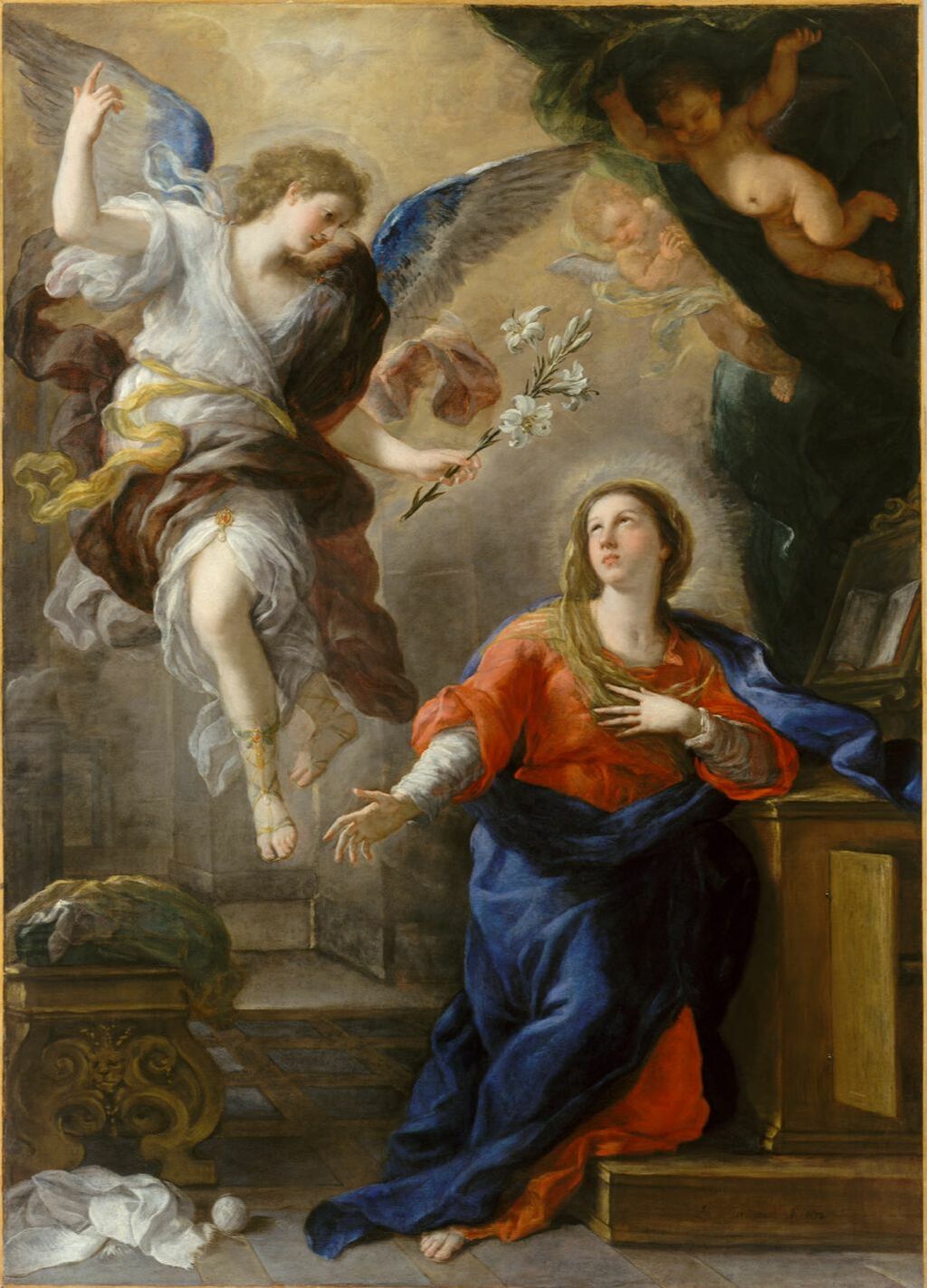|
Luke 1:26-38 (NRSVCE)
It’s the Solemnity of the Annunciation today, so it’s only fitting that today’s reading is Luke’s account of the Annunciation. There’s much to draw out of this passage. It has been central to the development of Mariology (that is, the theological study of Mary) over the years. The very first words that the angel Gabriel says to Mary are even the opening line of the Hail Mary prayer. Ave gratia plena; Dominus tecum; Benedicta tu in mulieribus. Hail, one who is full of grace! The Lord is with you! Mary was indeed full of grace. She had been given the greatest gift of all, for she was chosen by God to be the woman who brought the Savior into the world.
Her initial response seems silly, at first glance. “How can this be, since I am a virgin?” Surely any virgin, particularly one who was betrothed, who heard the news that she would bear a child would think “I suppose I will become pregnant by my husband.” But Mary presumes this is not the case. And why? Traditionally, Mary is believed to have been a “temple virgin”, or one who has been consecrated to a life of virginity. I am no expert on the Early Church, but as I understand it this largely comes from the Protoevangelium of James, which recounts how Mary’s parents, Anne and Joachim, consecrated Mary to God when she was only three years old in thanksgiving for giving them a child. This event is still celebrated every year by Catholics and Orthodox alike as a feast day, and provides some context which makes some sense of today’s reading. If Mary was a consecrated virgin, of course she would be wondering how it was possible she would become with child. She had vowed to remain a virgin forever. Surely she wasn’t to break that vow! The angel Gabriel then explains how it will be a miraculous conception, for “nothing will be impossible with God.” Throughout all of this, it can seem as if Gabriel is merely telling Mary what will happen. It can seem that Mary is just a cog in the wheel, a character with no agency. But her response is perhaps the most theologically significant point of this passage. “Here am I, the servant of the Lord; let it be with me according to your word.” Mary agrees, she says yes. The implication of this is that Mary could have said “no.” She could have refused Gabriel. But because God had filled her with His grace, she was empowered to say yes. God would not have forced Mary into this role against her will. And nor does God force our vocations on us. God calls us, and we must respond. Mary acts as an archetype of how we ought to respond. “Let it be with me according to your word.” |
ArchivesCategories
All
|

 RSS Feed
RSS Feed